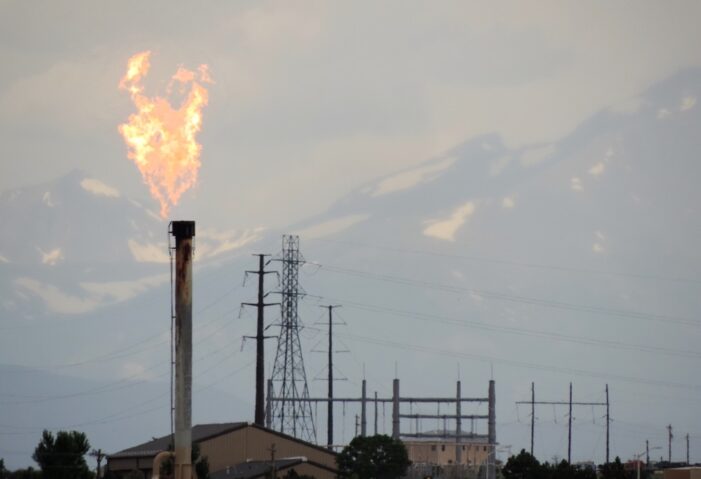Current work in wildlife, rivers, public lands, and climate
Press Releases
Lawsuit aims to protect Colorado Front Range air from oil and gas industry’s pollution
Filed in state court by student attorneys with the University of Denver Sturm College of Law Environmental Law Clinic, the suits target the failure of the Air Pollution Control Division to meet legally required deadlines for reviewing and updating air pollution permits for large oil and gas processing facilities.
The suit targets large oil and gas industry facilities located along the Colorado Front Range. The first suit includes two facilities in Adams County: the Dupont Terminal, a bulk fuel terminal located at 8160 Krameria St. and the Totem NG Transmission and Storage Facility, a large gas storage and transmission plant located at 54200 E. 104th Ave.
The second suit includes eight gas processing facilities in Weld County: the Vollmar Compressor Station; Tri-Town Compressor Station; St. Vrain Compressor Station; Powers Compressor Station; Platteville Compressor Station; Mead Compressor Station; Hambert Compressor Station; and Dougan Compressor Station. All eight facilities are owned and operated by Kerr-McGee, a subsidiary of Occidental Petroleum, the largest oil and gas company in Colorado.
All of the polluting facilities are considered major sources of air pollution and collectively release thousands of tons of toxic air emissions, including nitrogen oxides, volatile organic compounds, and particulate matter. All facilities contribute to high ozone levels in the Denver Metro area.
Ozone, a poisonous gas, is the key ingredient of smog and poses myriad health risks. It can trigger asthma attacks, worsen lung disease, and damage respiratory tissue. Seniors, children, and active adults are most at risk. The Denver Metro area has violated federal limits on ozone since 2007.
“The operating permits these polluters are supposed to have can be a vital tool in our fight against air pollution in Colorado,” said Robert Ukeiley, an environmental health attorney at the Center for Biological Diversity. “However, the state government’s combined decades of delay in issuing these permits means more asthma attacks and other bad health consequences.”
The facilities are required to operate in compliance with updated air pollution permits. All 12 facilities applied for permits in early 2021. By law, the Air Pollution Control Division was required to grant or deny the permit applications within 18 months of receipt. It has been longer than 18 months since the facilities submitted their applications, yet the Division has taken no action.
“The Polis administration is effectively giving the oil and gas industry a free pass to pollute,” said Jeremy Nichols, Climate and Energy Program Director for WildEarth Guardians. “For the health of Coloradans and Colorado communities, this delay has to stop, polluters need to be held accountable.”
Today’s lawsuit aims to secure deadlines for the Colorado Air Pollution Control Division to take action. If a source of air pollution cannot operate in compliance with state and federal clean air laws, then its operating permit must be denied.
The suit comes as the Colorado Air Pollution Control Division is increasingly under fire for shirking its duty to protect clean air and hold polluters accountable. This week a state court in Adams County ruled the Division illegally delayed action on four air pollution permits, ordering the state to take action.

Colorado Front Range Oil and Gas flare